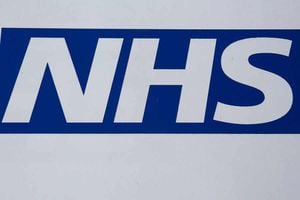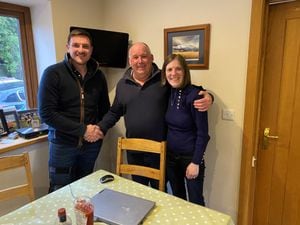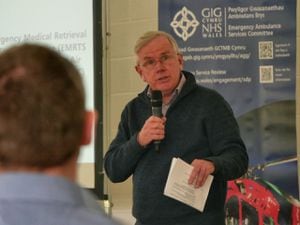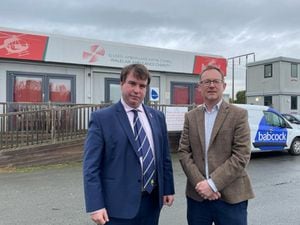Shropshire hospital trust missed vital bowel cancer target
Patients had to wait more than 13 weeks for vital bowel cancer tests in one month this year, new figures have revealed.

Six patients were left waiting more than six weeks for the tests and three more than 13 weeks at Shrewsbury and Telford Hospital NHS Trust in February. Hospital bosses have apologised and said they had hit 100 per cent of their targets in March.
Figures released by NHS England for February revealed nearly 2,000 people in England waited longer than the six week target set by the Government.
Carolynne Scott, assistant chief operating officer at the Shrewsbury and Telford Hospital NHS Trust, said: "While we fell just short of the target for diagnostic tests in February, I am pleased to report the trust recovered its position in March and hit 100 per cent of its targets.
"However, we would like to apologise to the small number of patients who had to wait longer for a test than they should have done in February."
The two key tests to diagnose bowel cancer are colonoscopy and flexible sigmoidoscopy – a camera on a thin, flexible cable inserted through the anus to look at different parts of the bowel. These tests are known as endoscopy procedures.
At Shrewsbury and Telford Hospital NHS Trust, 1.9 per cent of patients were waiting more than six weeks for a colonoscopy appointment and 1.4 per cent for a flexible sigmoidoscopy.
A total of 21 hospitals in the Midlands and east of England did not meet the NHS standard of less than one per cent of patients waiting more than six weeks for tests that could diagnose bowel cancer.
Asha Kaur, head of policy at Bowel Cancer UK, said: "These figures are very disappointing.
"It is unacceptable patients are being made to wait more than six weeks for endoscopy tests.
"How soon someone is seen determines how early a diagnosis can be made.
"We know if diagnosed at the earliest stage more than nine in 10 will survive for five years or more.
"However, this drops significantly as the disease develops.
"Trusts and CCGs need to work together to forecast future demand to ensure they have the capacity to meet this demand."
Ms Kaur said the government also needed to invest to increase capacity to alleviate the pressure on hospitals so they could meet the NHS standard of less than one per cent waiting no more than six weeks for an appointment.
"They have already made some commitments to increase the capacity of endoscopy but they do not scratch the surface," she said.
"That is why we are calling for a national endoscopy strategy and a training programme as a solution to the mounting pressure on endoscopy units.
"We hope to work with Government, NHS England and medical professions to ensure a sustainable endoscopy service that has the capacity to meet future demand."





